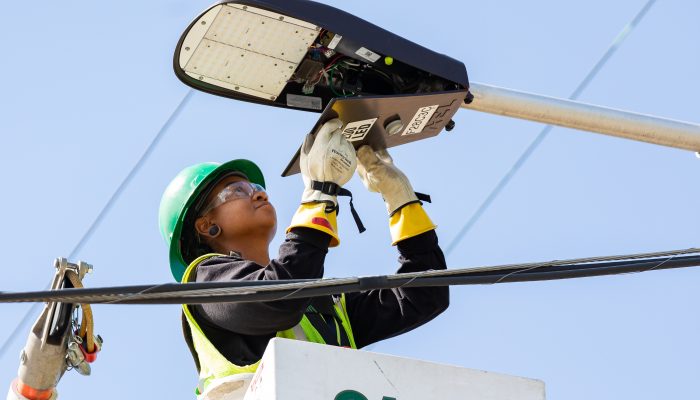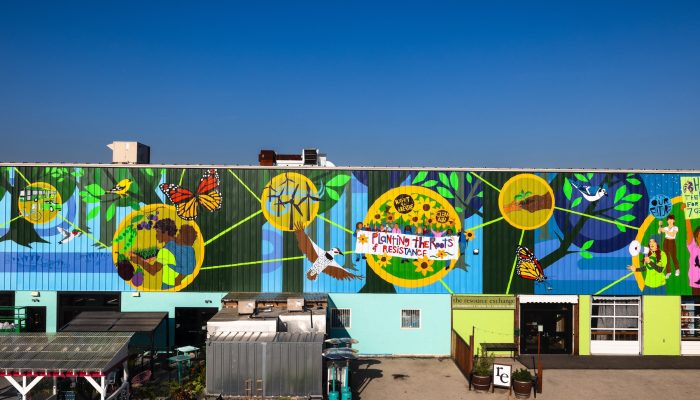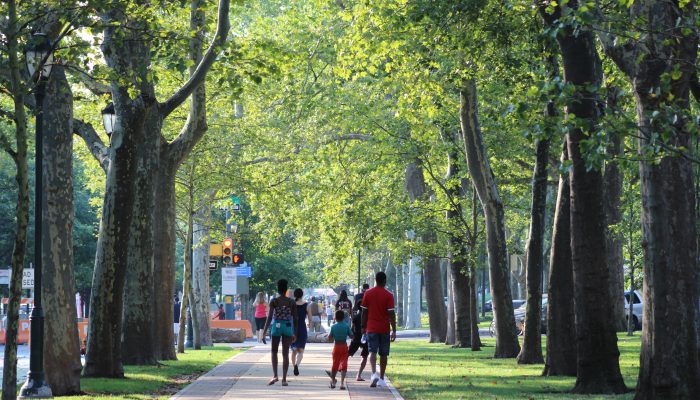This post was written by the Pennsylvania Horticultural Society (PHS) with collaboration from the Office of Sustainability and adapted for Phila.gov readers.
2021 was a year of firsts for the Philadelphia Flower Show: for the first time in 193 years, the Pennsylvania Horticultural Society (PHS) held its Philadelphia mainstay event outdoors in South Philadelphia’s FDR Park. On top of several “first-time-ever” challenges and successes for the Show, PHS set an ambitious goal to keep 65% of waste generated at the event out of the landfill, and ultimately surpassed this mark with an impressive overall waste recovery rate of 83.1%.
A Zero Waste goal is a high bar to meet for any type event. A “Zero Waste” goal aims to keep a minimum of 90% of waste items out of the landfill and instead, these items are recycled, composted, or reused. Careful planning and a clear strategy are needed by any organization to reach this goal, as everything including pre-event waste (from set-up), waste generated during the event, and post-event waste (from breakdown) must be accounted for to get an accurate measure of the overall Zero Waste effort.
In the weeks spent producing its sustainability plan, the PHS team worked with other partners and resource groups that included: the on-site Flower Show operations team, an external housekeeping staff, over 200 volunteers that made up a new sustainability committee named the “Green Team,” the 130+ on-site Flower Show vendors, and more than 75 Flower Show exhibitors. A strong collaborative relationship with supportive partners helped bolster PHS’s efforts, with organizations including the Philadelphia Office of Sustainability and the Philadelphia Parks & Recreation Department, along with the support of numerous not-for-profits across the region who assisted with volunteer recruitment and were participants in the post-Show donations program.
The combined sustainability efforts of these groups spanned the Show’s weeks-long set-up, ten live Show days with more than 112,000 guests on the Show grounds, and multiple breakdown days. In all, 465.2 tons of material were managed by the onsite team and PHS’s hauling partner for recovery before, during, and after the Show. The recovered material included:
- Source separated organics: 3.66 tons separated and composted at the Forman Correctional Composting Facility
- Plant organics: 79.56 tons separated and composted at Linvilla Orchards
- Concrete: 213.57 tons separated and recycled at JJD Recycling
- Construction & demolition material: 7 tons separated and recycled at Envirowaste
- Cardboard: 7.87 tons separated and recycled at United States Recycling Inc.
- Plastic flower pots: 1.62 tons separated and recycled at Omni Recycling
- Commingled single-stream recyclables: 9.18 tons separated and recycled at Omni Recycling
- Shrink wrap: 690 pounds or 0.345 tons separated, recycled, and remade into two 6-foot benches by Terracycle
These efforts left a total of 78.64 tons of waste to be sent to the landfill – in all, the Show recovered 83.1% of the Show’s overall waste.
Additionally, during the post-Show donation period, over 10,600 plants were donated to more than 40 nonprofits for installation in projects throughout the region. More than 4,400 plants were distributed to PHS members, volunteers, and other PHS constituents. FDR Park, the Show’s host, received over 1,900 plants and a myriad of materials including a bridge and paver stones for inclusion in park improvement projects.
The Show’s Green Team managed a food rescue and organics donation program at the Show. Partnering with the food rescue nonprofit Food Connect, leftover food was rescued during the Show and redistributed in the community. In all, over 240 Recycling Ambassadors and Leads and 59 Plant Pullers were involved in making the Show’s Zero Waste goal a reality, altogether committing roughly 792 volunteer hours.
The core sustainability planning team at PHS was keenly aware of the challenges in this first outdoor Flower Show. In surpassing its Zero Waste goal for this year’s Show, PHS will use the learnings from the 2021 event to provide a strong springboard for future events and will continue its sustainability efforts in the Greater Philadelphia region to advance health and well-being.




